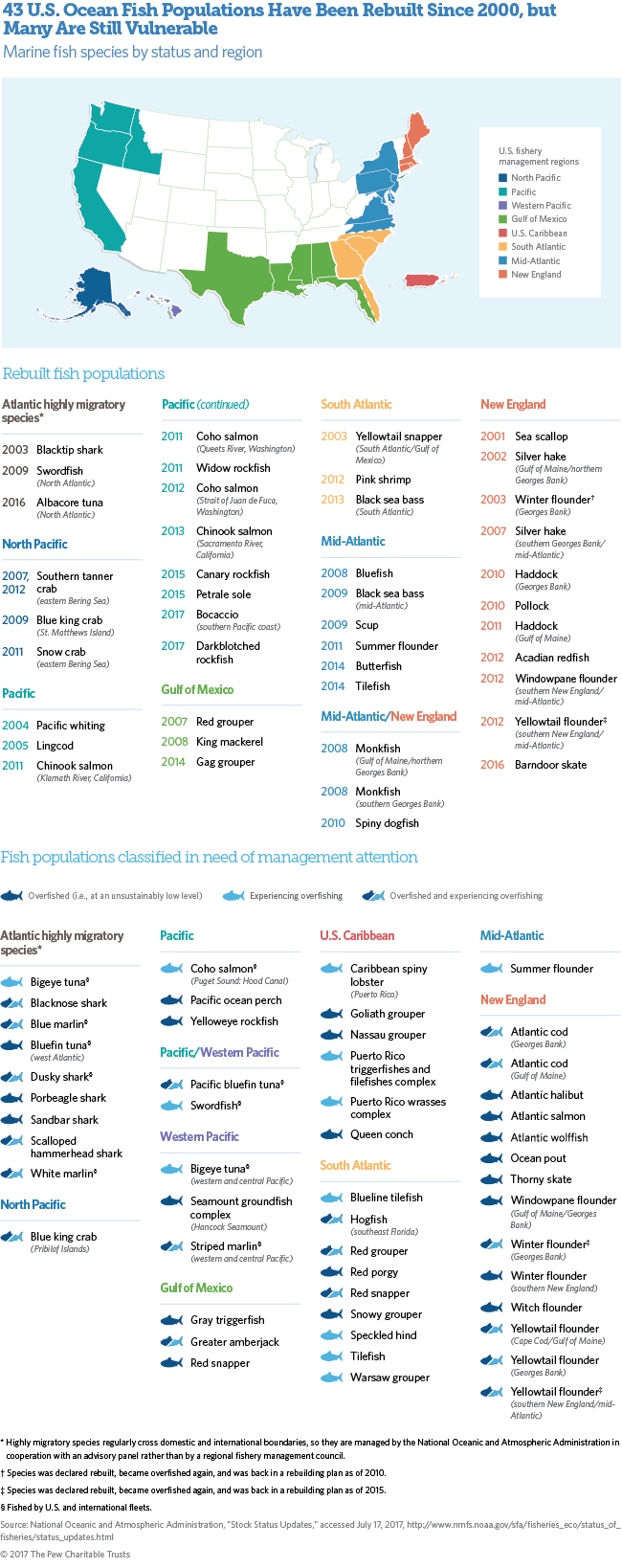U.S. Has Made Progress in Restoring Ocean Fish
Magnuson-Stevens Act is helping dozens of fish populations recover from overfishing, but more is needed

Pacific lingcod populations have been restored to healthy levels using science-based management.
© Kawika ChetronThe Magnuson-Stevens Fishery Conservation and Management Act is the primary law that governs U.S. fisheries in federal ocean waters. Enacted in 1976 and strengthened by Congress in 1996 and 2006, the act has led to considerable improvements in the health of marine fish populations and has benefited coastal communities across the country.
The Magnuson-Stevens Act requires that the nation’s fishery managers take several conservation actions, including:
- Preventing overfishing—when a fish population is caught at a faster rate than it can reproduce—through the use of science-based catch limits.
- Rebuilding depleted populations to healthy levels that allow for long-term economic and ecological benefits.







